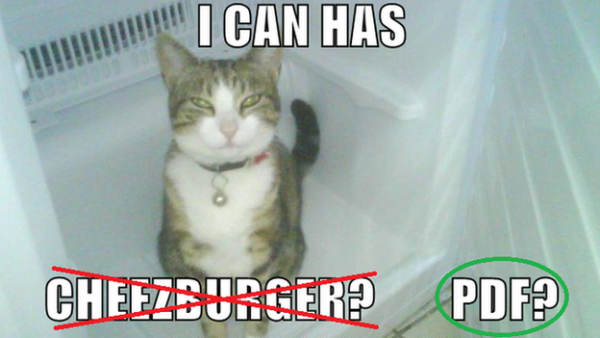
"Basically you tweet out a link to the paper that you need, with the hashtag and then your email address," she told BBC Trending radio. "And someone will respond to your email and send it to you."
This was the guidance given in a recent BBC post by Andrea Kuszewski for researchers who are unable to access PDFs of journal articles they need for their work because of paywalls. The price tag for research has become a increasing challenge for academics and for libraries who are almost universally struggling to continue to provide access to the research needed by students and faculty - not to mention persons or organizations unlucky enough to be sitting outside of the walls of an academic institution. The problem with sharing this content openly in this way is that users are violating the publishers copyright, meaning researchers and students are putting themselves in harms way to ensure that they can access the research they need.
How did we arrive in this situation in the first place? After all, university research is largely publicly funded, conducted by academics as part of the regular duties, peer-reviewed by academics again as part of their regular duties, and journal editoral boards again are generally composed of academics. But publishers who own the journals require that authors transfer their copyright to them upon acceptance. Once that happens, the scholarly community loses control over that content. All legal access must proceed through the terms and conditions set out by the publisher - usually at a steep price. However there is another way to level the playing field.

Open Access (OA) scholarly literature is digital, online, free of charge, coupled with the right to use these works fully in the digital environment.
Open Access to publicly funded research is becoming a norm in the publishing process. Canada's Tri-Agencies now require that all articles published in connection with research they fund be made available open access within 12 months of publication. This can be accomplished by publishing in a growing number of open access journals that provide immediate OA to everything they publish or by taking advantage of the opportunity to archive a copy of the accepted work in an open access repository like Scholarship at UWindsor. The later enables researchers to publish in familiar non-oa journals. Publishers like Elsevier and Springer have had to modify their policies to provide authors OA article posting rights as a result of growing pressure from universities and governments. In the US the Fair Access to Science and Technology Research Act will introduce similar requirements.
University libraries across the world are also playing a larger role in helping researchers on their campus operate local open access journals by providing web hosting and professional publishing tools and platforms along with support and expertise. If you look across any university campus you will likely find several locally operating scholarly journals being supported by campus resources.
All of this means that the scholarly publishing landscape is changing and that free access to published research on the web without having to push researchers into legally compromising situations is a growing reality. It is also being seamlessly integrated in to your typical search patterns. Many articles that you discover through Google Scholar and other academic search engines sit in open access repositories and journals without the reader realizing it when they download the PDF.
So if you are a researcher, in the majority of cases, there is a way to help be a solution to the problem of access that you face. Take the time to inquire about how you can make your own research available open access.
For more information about the Tri-Agency and Windsor open access policies please visit: http://leddy.uwindsor.ca/tri-council-oa

Connect with your library